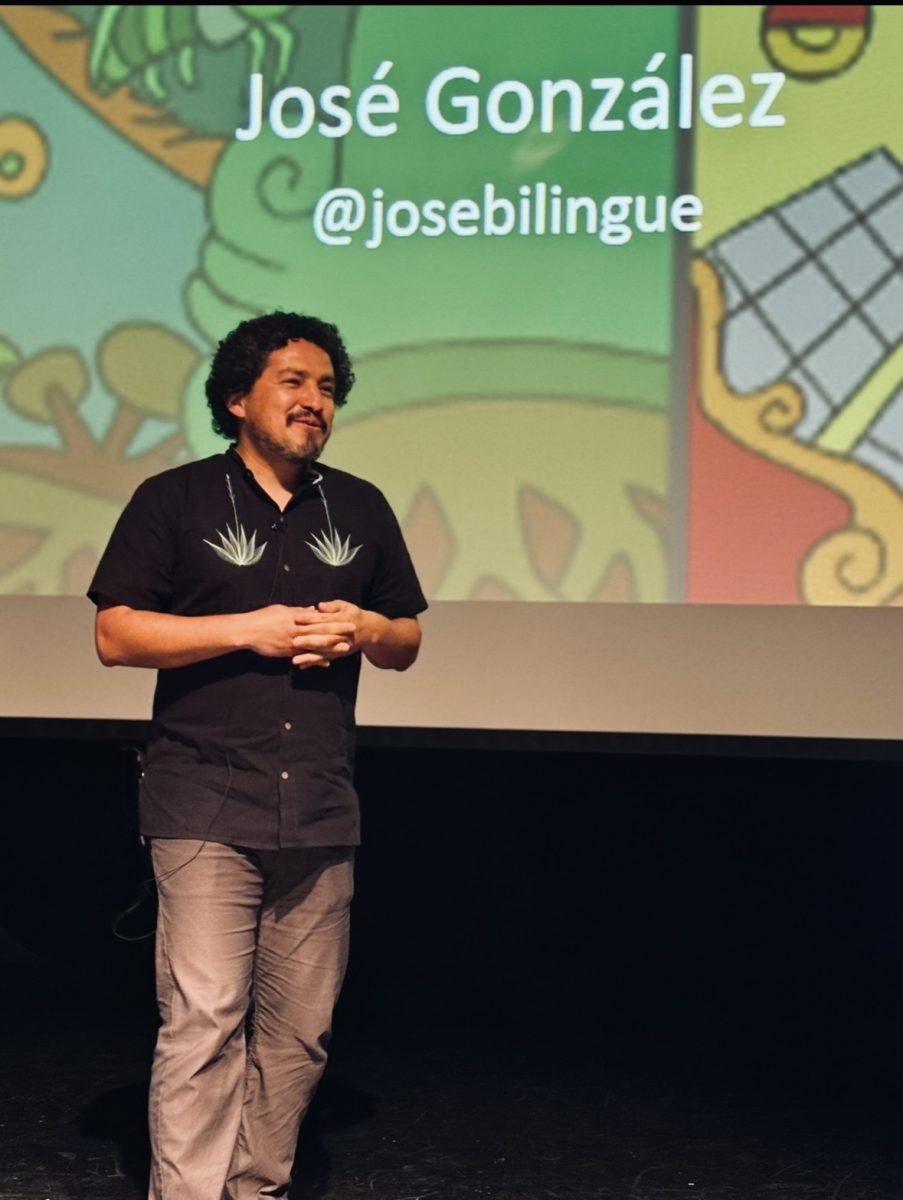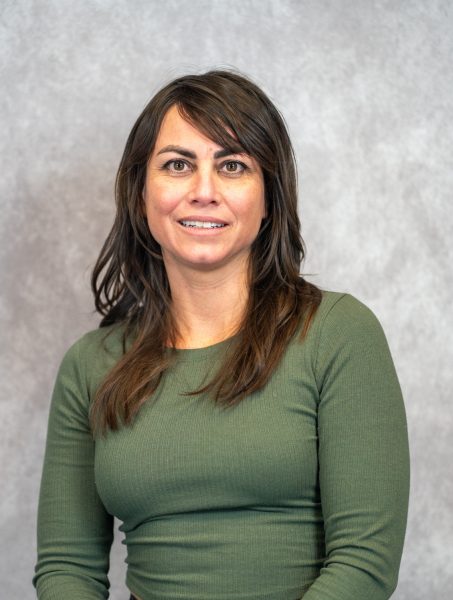With three words, “radical means root,” naturalist and educator José González invited attendees to rethink their relationships to nature and each other during his presentation at Santa Rosa Junior College on April 14.
González blended equal parts lecture, storytelling and call to action, as part of the Dede and David Del Monte Lecture Series at the Luther Burbank Auditorium.
“Similar to the word radical, meaning root, revolutionary comes from revolutions, which are cycles,” González said. “For me, it’s about how we become revolutionary by being complicit in the regenerative cycles that nature already offers us. As people, we often get into environmental messes by forgetting that we’re part of those cycles, not separate from them.”
As founder of Latino Outdoors, a nationwide non-profit, González draws from both personal and collective experiences to explore how environmental education can be a gateway to cultural affirmation, systemic healing and social change.
Growing up as a Mexican immigrant in California’s Central Valley, González said he often felt disconnected—from land, identity and power. “Junior college was a powerful, transformative experience,” he said. “For anyone who’s been a student at a California community college, you know how meaningful that journey can be.”
González explored six conditions for systems change—policies, practices, resource flows, relationships, power dynamics and mental models. “Mental models are some of the hardest to shift, because they are implicit,” he said. “They are mind shifts — pictures of how we see the world and how we make sense of it.”
He introduced the ecological concept of the “ecotone,” a transition zone between two ecosystems similar to where a forest meets a meadow. He explained, these “edges” are where cultures, ideas and identities meet, sometimes awkwardly, but often with great potential.
González said people can overcome their resistance to hear differing philosophies with the language they use, which he calls the “art of and.” Choosing words like “both” or “and” in a conversation opens a cognitive space that welcomes new ideas, when words like “but” often signal rejection.
He contrasted this idea with what he described as a “mechanistic reductionist worldview.” He said this worldview treats nature and people as parts to be managed, extracted or fixed, operating as a machine instead of a meadow. He argued that true transformation must be ecological, relational and deeply rooted.
Pepperwood Preserve and LandPaths organizations attended the event with booths for attendees to connect, reflect and represented their work in conservation and community education.
“Our mission is to inspire conservation through science,” said Summer Swallow, environmental educator at Pepperwood Preserve. Pepperwood’s staff conduct research on local ecosystems and weather patterns to better understand the health of plants and animals, supporting efforts to become stronger stewards of the Earth and ensure a sustainable future.
Swallow said the keynote speech prompted her to reflect on collaboration between organizations. “I really liked his bringing the thought about network leadership principles… thinking beyond the self and the organization to learn how the different nonprofits here can help build each other up.” So that we’re all working together towards our similar missions—to help achieve a greater good.”
Nancy Hernandez, a bilingual field specialist with LandPaths, shared how the organization focuses on making nature accessible to all. She highlighted programs ranging from family outings to stewardship projects and summer camps, all aimed at helping individuals and families build stronger connections with the outdoors.
González offered a life-honoring worldview, where humans are not separate from nature but expressions of it. “Be with nature, as nature, in radical and revolutionary balance,” he said. “Not just in awe of it, not just learning from it,but remembering that you are it.”




